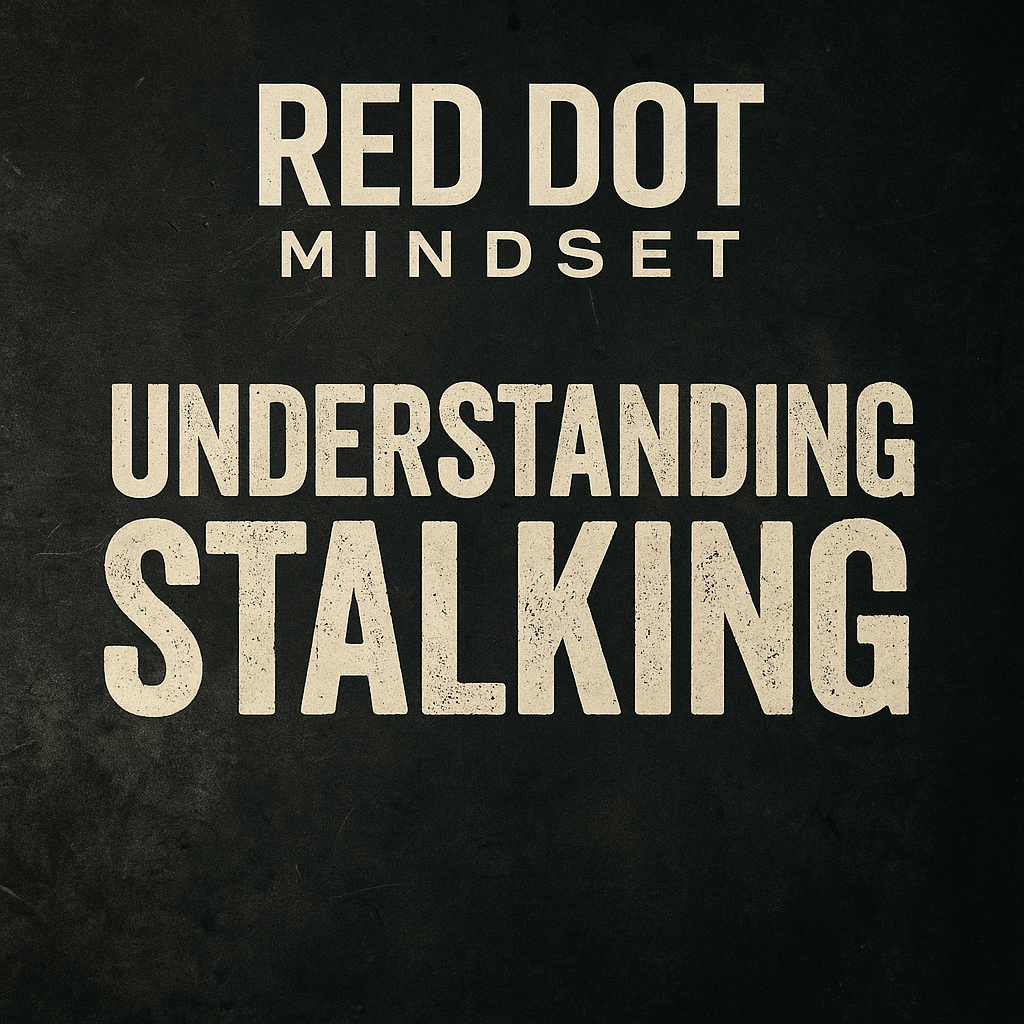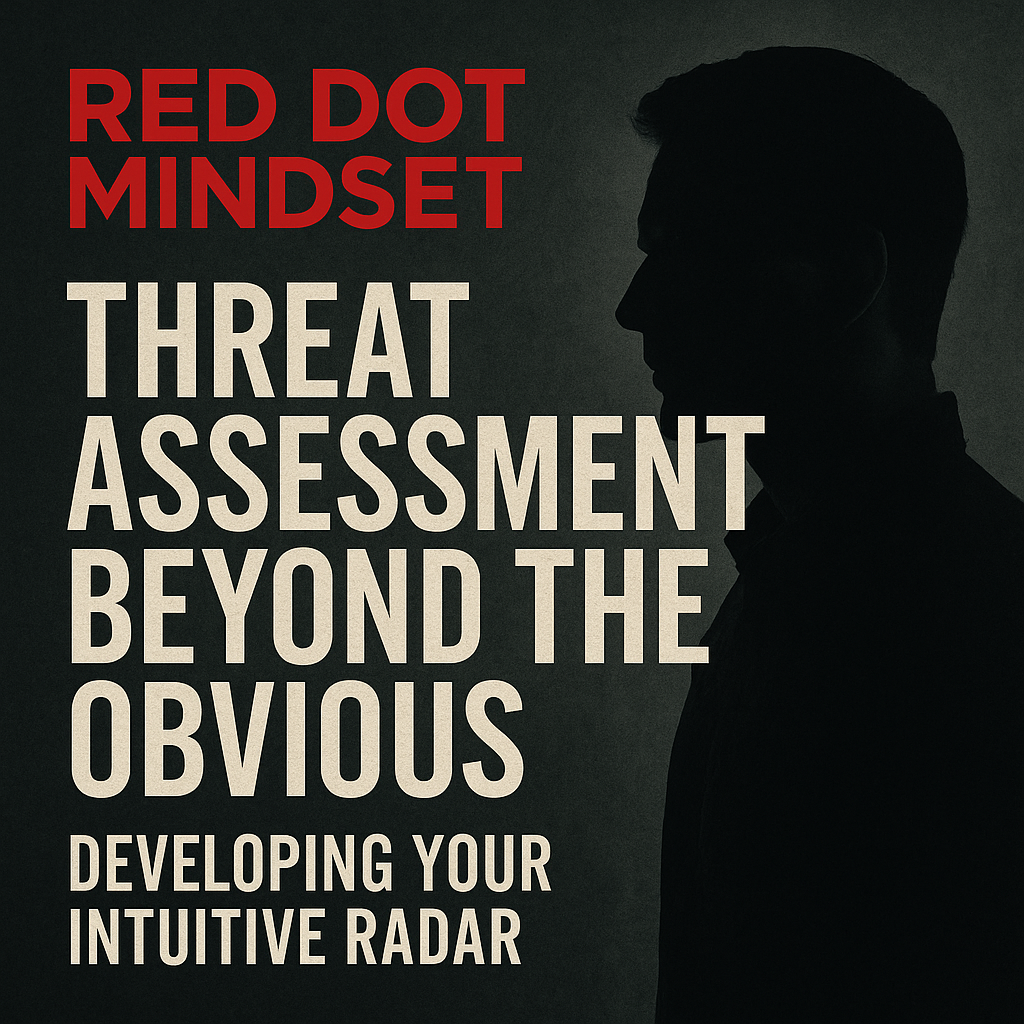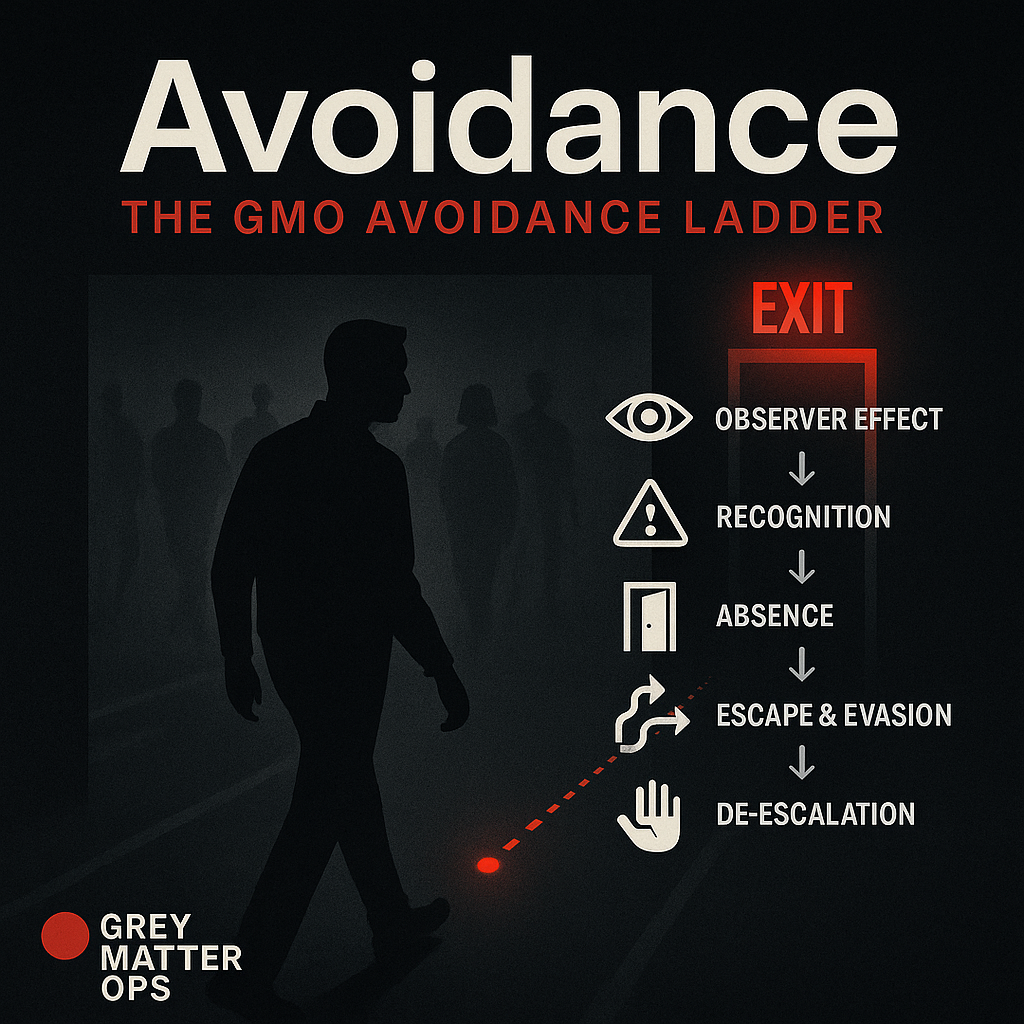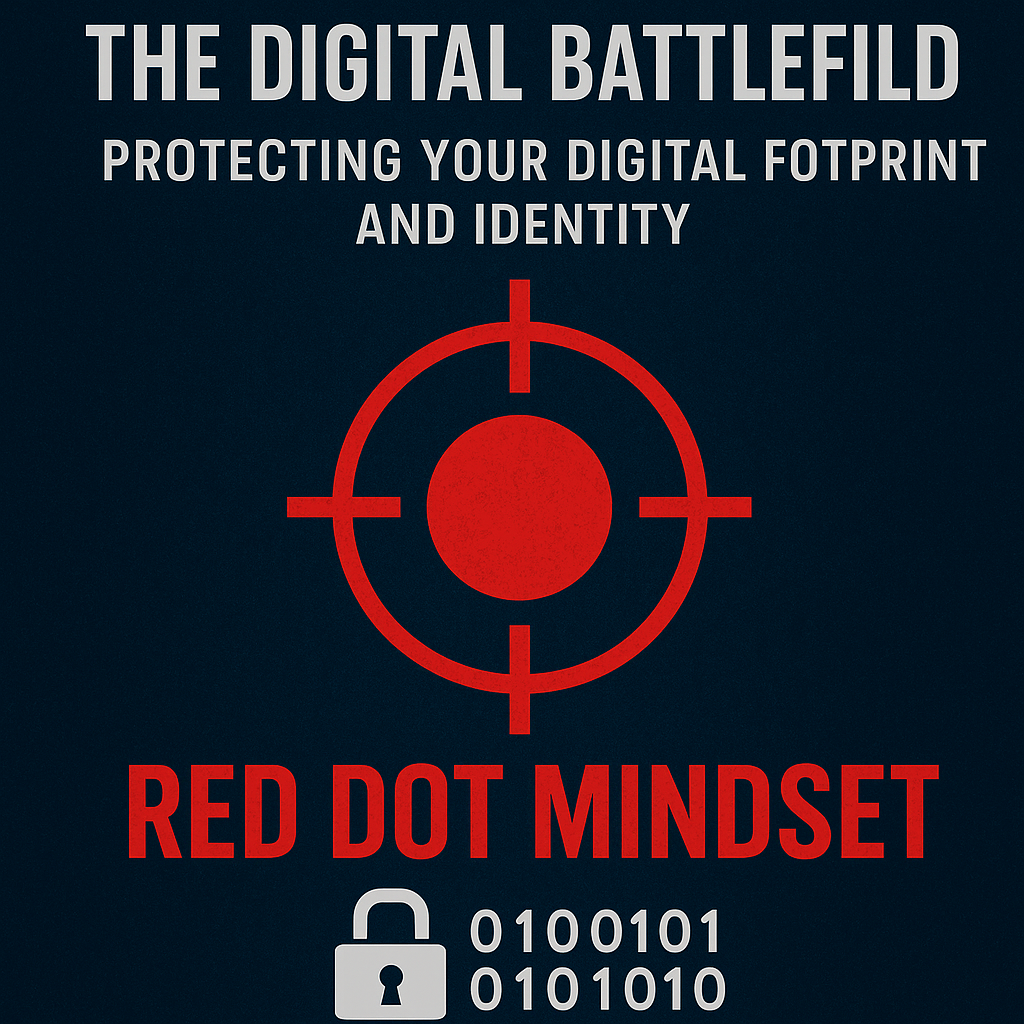Episode Transcript
[00:00:00] Speaker A: Welcome to Red Dot Mindset, a podcast powered by Gray Matter Ops. Created by Mickey Mitta, a combat veteran and subject matter expert in threat assessment, this show delivers real world strategies to help you stay aware, stay safe, and stay ready. Today's episode is all about stalking. Not the Hollywood version, not the misunderstood trope, the real thing. And the very real dangers it presents.
Because stalking is not just about being followed. It's about fear. It's about manipulation. It's about control.
And it's far more common than people realize.
[00:00:38] Speaker B: Stalking. It seems like something that only happens in movies or to other people, right?
But here's the terrifying 1 in 6 women will experience it, and most never see it coming until they're already trapped in its web.
[00:00:52] Speaker A: That's such a chilling statistic. And what's even more disturbing is how our culture often romanticizes these behaviors.
[00:01:01] Speaker B: You know, it's fascinating how Hollywood has completely warped our understanding of what stalking actually looks like. We see these persistent pursuers portrayed as romantic heroes, when in reality, they're displaying seriously dangerous behavior patterns.
[00:01:15] Speaker A: Well, let's talk about those real patterns, because the numbers are genuinely frightening.
76% of women who were murdered by current or former intimate partners were stalked first.
[00:01:27] Speaker B: And what makes this particularly insidious is that most victims actually know their stalker. It's often someone they once trusted, someone who already has intimate knowledge of their life and routines.
Mmm.
[00:01:41] Speaker A: That really challenges the stranger danger narrative we've all grown up with, doesn't it?
Can we break down what modern stalking actually looks like?
[00:01:50] Speaker B: There's actually a framework called SLII that helps identify different types of stalking behaviors.
The S stands for surveillance.
Everything from physical following to sophisticated digital tracking. We're talking GPS devices, spyware, social media monitoring.
[00:02:09] Speaker A: Oh, my goodness. And technology has made this so much easier for stalkers, hasn't it? Like those Apple airtags that keep making headlines for being misused to track people.
[00:02:20] Speaker B: Exactly. And that brings us to the first I life invasion.
This is where stalkers force themselves into someone's daily existence through constant messages, showing up uninvited, or even manipulating their way into the victim's social circles.
[00:02:35] Speaker A: You know what's particularly disturbing? How stalkers often try to make their behavior seem normal to outsiders while sending clear, threatening messages to their victims.
[00:02:46] Speaker B: That's the second I intimidation.
Like that case where a stalker would leave coffee cups matching what their victim had ordered earlier that day.
To anyone else, it looked like litter, but to the victim, it was a crystal clear message.
I'm watching you.
[00:03:02] Speaker A: That's so calculated. It's like psychological warfare, designed to make victims question their own sanity.
[00:03:09] Speaker B: And then there's the final component, or eye interference.
This is where stalking intersects with other forms of abuse and control.
Stalkers might try to get their victim fired, damage their relationships, or hack their accounts.
[00:03:24] Speaker A: Speaking of hacking, let's talk about the technology aspect, because modern stalking has become incredibly sophisticated.
[00:03:31] Speaker B: Well, what's particularly concerning is how many stalking tools are marketed as legitimate products.
Parental control apps, find my phone services, even smart home devices can be weaponized by stalkers.
[00:03:47] Speaker A: So what should someone do if they suspect they're being stalked?
[00:03:51] Speaker B: First and foremost, trust your instincts. If something feels wrong, it probably is.
Start documenting everything immediately. Dates, times, descriptions, screenshots, any evidence you can safely collect.
[00:04:05] Speaker A: And there are specific apps designed for this now, right, like victim's voice and Stalking Aware that help create court admissible documentation.
[00:04:15] Speaker B: Exactly. But documentation is just one piece of the puzzle. You need to think about both physical and digital security.
That means upgrading locks, installing security cameras, varying your routines, and doing a complete digital security audit.
[00:04:30] Speaker A: Well, that's interesting. What exactly does a digital security audit involve?
[00:04:35] Speaker B: You need to check every account, every app, every device.
Look for shared accounts that might be giving away your location. Netflix, photo sharing, car, GPS systems, change all passwords, and enable two factor authentication wherever possible.
[00:04:50] Speaker A: And what about building a support network?
Because handling this alone seems overwhelming and potentially dangerous.
[00:04:57] Speaker B: That's crucial. Tell trusted friends, family members, and colleagues they can help watch for suspicious behavior and provide support.
And don't hesitate to reach out to professional resources like domestic violence hotlines and victim advocacy groups.
[00:05:12] Speaker A: You know what's particularly challenging? Navigating the legal system while dealing with all of this trauma.
[00:05:18] Speaker B: The legal response to stalking can be frustrating, but there are steps victims can take to strengthen their case file. Police reports, to create a paper trail. Even if immediate action isn't taken, Consider getting a protective order Document every violation.
[00:05:35] Speaker A: So let's create a clear action plan for anyone who might be experiencing this right now.
[00:05:40] Speaker B: First, trust your instincts and start documenting everything.
Second, secure your physical and digital environment.
Locks, cameras, passwords, location, services.
Third, build that support network of both personal and professional contacts.
[00:05:58] Speaker A: And remember that you're not overreacting. These patterns of behavior are serious warning signs that shouldn't be ignored.
[00:06:06] Speaker B: You know what's really striking about all of this? How crucial awareness is, the more we understand about stalking, the better equipped we are to recognize it early and take action before it escalates.
[00:06:17] Speaker A: That's exactly right. Knowledge really is power in these situations, and no one should have to live in fear.
[00:06:23] Speaker B: Well, if there's one thing we want listeners to take away from this conversation, it's that stalking isn't romantic, it isn't harmless, and it isn't something anyone should have to face alone.
There are resources, there are people who understand, and there are ways to reclaim your safety and peace of mind.
[00:06:42] Speaker A: If you ever feel unsafe, go to a police station, a public place, or call emergency services immediately. Your safety always comes first.
At Gray Matter Ops, we teach that mindset is your first layer of defense. That includes trusting your intuition if something feels wrong, it probably is. Red Dot Mindset isn't just a podcast, it's a mission. We create tools, training and strategies to help people, especially women, stay one step ahead.
And that's your call to action.
Follow Red Dot Mindset on your favorite platform. Visit greymatterops.com for resources, safety guides and mission ready content and share this episode with someone who needs it because awareness is armor and it could save your life.




